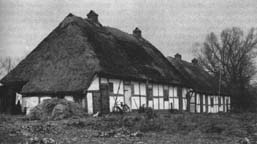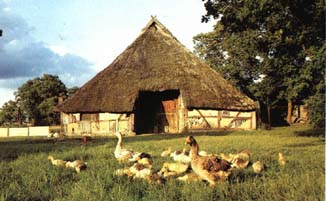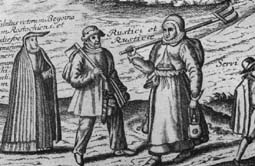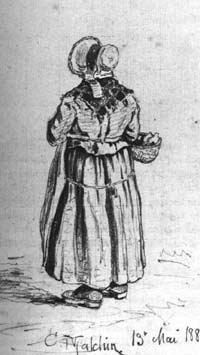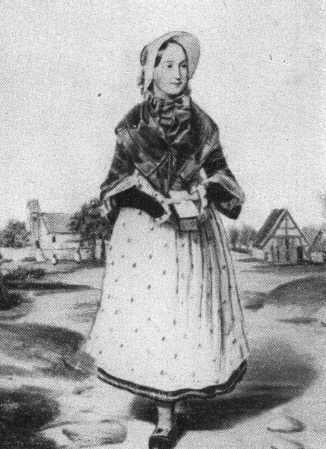|
Rosalind Davies' Family
History |
A Short History of Mecklenburg Schwerin, in northern Germany
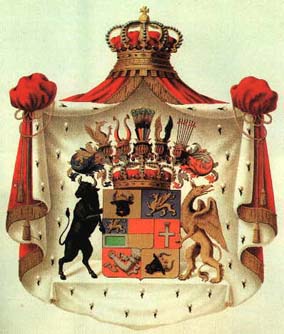 |
Early people began to colonize the Mecklenburg
area about ten thousand years ago in the latter part of the Ice Age. The
livesof the people in these early times were geared towards hunting and
they had a great dependence on animals. Their tools were made from flint,
bone and horn. Teutonic peoples inhabited the Mecklenburg area in the
first centuries of the Christian era, butearly in the 6th century, it
was seized by various Slavic tribes. The early name for the Mecklenburg
area was Vandalia andlater it was called Wendenland. The land was not
cultivated during the Slavic times, but was covered everywhere withprimeval
forest. It was isolated and culturally cut off from the rest of Germany.
|
| The Mecklenburg Coat of Arms |
|
In Mecklenburg during the 1700s and 1800s a
type of Feudalism existed known as "Inherited Serfdom". The
land ownerscontrolled the economy and ruled their estates with absolute
authority. The peasants were dependent entirely on the nobleswho could
even buy and sell them with or without their property. The tax rate on
the peasants had to be reviewed every twoto three years, and was usually
increased at that time. They could not acquire any more land than they
already had. TheirLandlords produced crops for export from their vast
estates by using the labor of these bonded peasants, servants andlaborers.
The landlords were known as "Landed Junkers". his word comes
from "Jung Herr" which means "young noble".
By the 1800's the Landlords had driven away more and more peasants with their highhanded ways. They then incorporatedthose peasants' plots into their estates, and crop production expanded further. This callous robbery of the peasant propertieswas known as "peasant seizure". Ten thousand peasants lost their holdings in this way. In Mecklenburg, where the Nobilityowned almost all of the land and dwellings, the number of estimated peasant foreclosures went from 2,490 to nearly 12,000by 1800 AD. The former peasants who ad land left held only small holdings which ensured little more than a bare livelihood for themselves.
|
||||||||||||||||||||
|
|
In 1807 Baron von Stein tried to carry through a reform of the Feudal system. He felt the peasants' and laborers' lot had to beimproved. He did not want to abolish the large Landholders, but they were to be limited in their political and administrativepowers and to improve the state of their workers. At that time, workers worked from sunrise to sunset for a pfennig an hour,a very small amount. The value of goods (potatoes, corn, wood, etc.) was deducted from that and most of their work was paidfor by these goods. Women and children performed heavy work. Baron von Stein's reform said that peasants could nowchange their place of residence without permission, and children were allowed to learn a trade. But the Landlords ought theseprogressive measures, refused to implement them, and the edict of Baron von Stein was never executed. From 1806 to 1813 the country suffered great hardship and destruction.
This period came to be known to all Mecklenburgersas the "Franzosentid"
( period of French occupation). Robbery and pillage became commonplace.
Both duchies,Mecklenburg Schwerin and Mecklenburg Strelitz, were forced
to join the Confederation of the Rhine under Napoleon'sprotectorate.
Of the more than 2,000 men who were conscripted from Mecklenburg to
take part in Napoleon's campaign against Russia, less than one hundred
came home again. |
by Ros Davies
